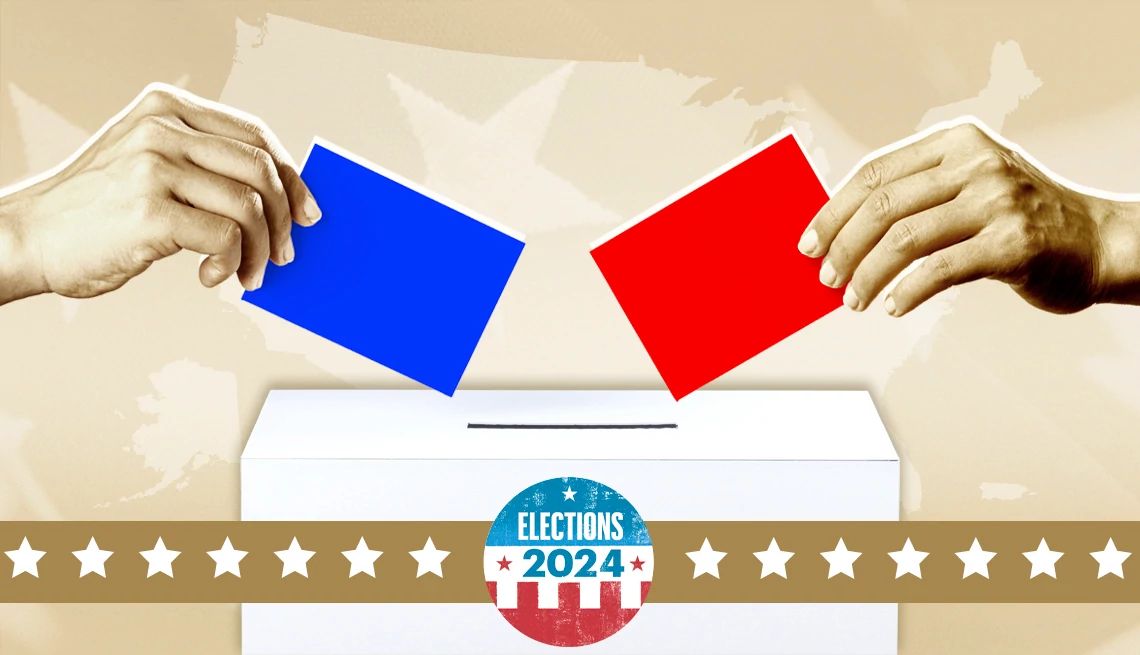Play all audios:
Overall, interest in voting in November is high. Eighty-four percent of voters ages 50-plus say they are extremely motivated to vote in the election for president, U.S. Senate and Congress,
compared with 63 percent of voters under 50. Because they turn out in high numbers, older voters are once again likely to tip the scales in close races across the country, as they did during
the midterm elections, says Khelan Bhatia, AARP’s senior campaign manager for voter engagement. Asked whether they would be more likely to vote for a Republican or Democrat for Congress if
the election were held today, voters of all ages evenly split between the parties, at 45 percent, with 10 percent saying they are undecided. “The data we have seen in this [2024]
congressional district poll shows how unbelievably close the races are,” Bhatia says. “Only a few districts in any direction will decide who controls the House of Representatives.” Voters 50
and older are slightly more likely to support a Republican, at 48 percent versus 44 percent who say they are more likely to vote for a Democrat. Broken down by age group, voters 50-64 give
Republicans the edge, favoring the GOP by a 13-point margin, while voters 65 and older choose the Democrat by a 5-point margin. AARP (Source: Getty Images) “There are a lot of voters who are
splitting their tickets,” meaning they intend to vote for different parties for presidential and downballot races, a practice that has become rare in recent elections, says Jeff Liszt, a
Democratic pollster with Impact Research. That means “a lot of voters are up for grabs and a lot of races are competitive because of it,” Liszt says. CONCERNS FOR OLDER VOTERS IN 2024
ELECTIONS Issues are often the driving force for these voters. Immigration and border security, along with economic issues, such as inflation and rising prices, are top-ranking concerns
among voters 50-plus. Asked to identify their top concern among a list of issues, more than half (54 percent) of those 50-plus chose a personal economic issue such as inflation, jobs or
Social Security. Sixty-three percent of voters 50-plus say they worry about their financial situation, according to the poll. Although concerns over immigration and abortion are largely
partisan, “economic issues bridge everybody,” says Bob Ward of the Republican polling firm Fabrizio Ward. “It is the number one issue cluster among Republicans, independents and Democrats.”

